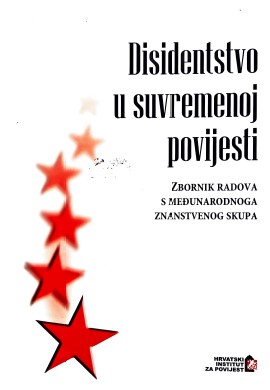Ivo Politeo i politička kultura mišljenja
Ivo Politeo and the Political Culture of Thought
Author(s): Nada Kisić Kolanović
Subject(s): Civil Society, Political history, Government/Political systems, Politics and society, Pre-WW I & WW I (1900 -1919), Interwar Period (1920 - 1939), WW II and following years (1940 - 1949), Post-War period (1950 - 1989)
Published by: Hrvatski institut za povijest
Keywords: Ivo Politeo; civil rights; repressive state apparatus; Kingdom of Yugoslavia; Socialist Yugoslavia;
Summary/Abstract: The opus of the lawyer Ivo Politeo (1887-1956), rich as it is encompasses a wide intellectual and chronological framework. This research text provides an arena to consider Politeo’s reactions to the unbridled encroachment of the state into the autonomous civil sphere in the historical context of Monarchist and Communist Yugoslavia. For Politeo’s understanding of political power in the epoch of Monarchist Yugoslavia (from 1920 to 1941) his cooperative efforts with the journal Nova Evropa [New Europe], a subject that has not been written about at all, is particularly important. Nova Evropa appeared on Zagreb’s intellectual horizon in 1920, covering such fields as politics, litera-ture, contemporary history, law and anthropology. The range of criticism of Yugoslavia’s pseudo-Parliamentarianism offered by Politeo and the intellectual circle around Nova Evropa is well-illustrated by the document known by the title “the Zagreb Memorandum’’ which came to be on 4 and 5 November 1934 wherein it was requested of the Regency to restore civil freedoms to the people. The other major current of Politeo’s discourse during the 1920s and 1930s was directed at concrete legal practice in the domain of the extraordinary Yugoslav laws which incriminated politically penalized acts. These laws were the core of the instrumental violence of the state apparatus and the spread of the web of the police. In his homeland Politeo is above all known as a defense lawyer for people of quite varying ideological orientations and as the author of the book Politički delikt (1921) in which he rejects the notion of mixed political offenses because “there are no pure of mixed absolute or relative political offenses but rather only ‘political offenses’ whose motive and purpose is political’’.
Book: Disidentstvo u suvremenoj povijesti
- Page Range: 75-104
- Page Count: 30
- Publication Year: 2010
- Language: Croatian
- Content File-PDF

